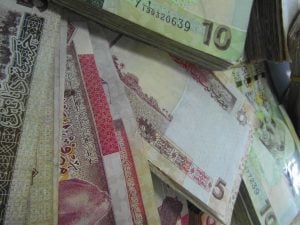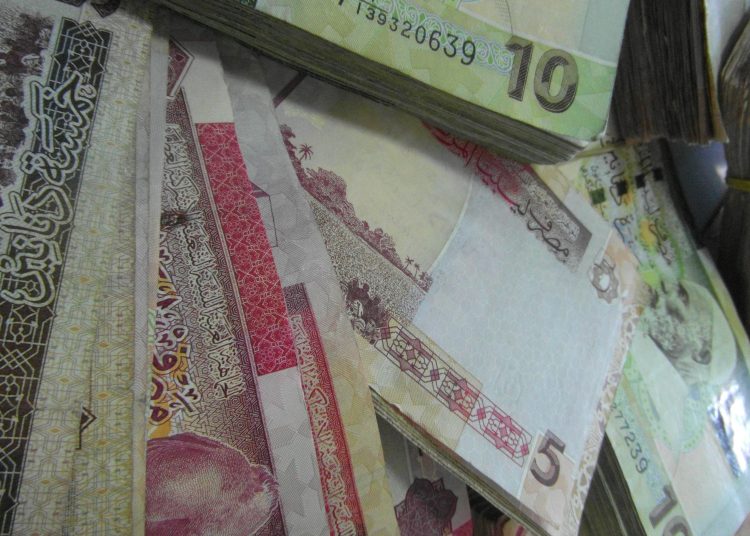By Khaled Ali Elmariami.

Tripoli, 3 February 2013:
The Libyan government headed by Ali Zeidan is engaged in the preparation of 2013 budget, subject . . .[restrict]to hydrocarbon revenues which will be presented to the General National Conference to adopt naturally after an in-depth discussion.
The authorities have to take into account that the budget should be distributed equitably so that citizens feel better off compared to the previous year’s budget. This budget could be the largest in the history of the country and yet there is a general feeling of dissatisfaction by many Libyans who are convinced that the economic situation has deteriorated when compared to previous years.
Usually when any country starts to set the state budget they must study the challenges facing that country during that year. In our case we can abbreviate Libya’s challenges in the following:
- Security and military expenditures to form the new army and police forces.
- Anti-corruption control and accountability.
- Inaction and negligence by the management of Ministers and Top Management. “The money should be used and distributed to the right places for the country’s interests”.
- Improving the level of per capita income and increasing the salaries.
- Paying attention to the health, education and services sectors.
- Investment in human resources to ensure the renaissance and rapid development of the country.
- Equitable distribution of resources to all areas and its vital facilities.
- Infrastructure.
Thus, the government must fix criteria for financial spending. The percentage of money wasted due to corruption is usually high in Third World countries, sometimes as much as 20% of the budget. However, we do not know yet what proportion of Libyan budget was wasted during the past year.
If a certain percentage, less than which was squandered each year, can be identified within the next budget and used to monitor and fight corruption in the state sector, this procedure will definitely guarantee us good methods of budget disbursements and ensures future benefits.
There should be descent distribution and clear percentages from the budget for each sector which should be sufficient for implementation of the sector’s expected projects. This must not exceed the percentages of the value of what could be implemented during the year’s requirements of the sector.
For example, 10 percent can be assigned for security and military expenditures from the anticipated budget of 60 billion Libyan dinars – which mean the equivalent of 6 billion Libyan dinars! Can we realistically equip the army and police forces with this amount in just one year? Or would such a large amount of money simply encourage corruption in this sector?
The government must also assign logical percentages in order of priority for important sectors such as health, education, services, increasing salaries and infrastructure renovation for all areas. These ratios must be reasonable compared to other developed countries.
For instance, the usual amount set for the health sector is up by 6 percent, education 5 percent and scientific research 2 percent. But it is expected that the ratio for scientific research will not exceed 0.1 percent of the general budget, despite the importance of this sector in encouraging young people into scientific research and patenting inventions, which will contribute to encouraging researchers to research and work hard in their homeland.
The importance of scientific research lies in the development of scientific capabilities, intellectual and behavioral. This sector is one of the mainstays of the economy of countries and their development and thus the well-being of our people and improvement of the status of our country among nations.
The same applies to the health sector, education, services, industry, agriculture and tourism which can increase the national income if developed and help guarantee the growth of the general budget in coming years.
I hope that civil society organizations and political parties start to hold public forums in order to discuss the issue of the budget and its equitable distribution to all sectors and geographical areas.
It is important for all citizens to feel that there is a possibility of improving their living conditions in the future with full transparency, which helps to increase their desire in achieving the state of institutions which we all aspire to.
Khaled Ali Elmariami BSc, MBA
The views expressed in this opinion piece do not necessarily reflect those of Libya Herald. [/restrict]








